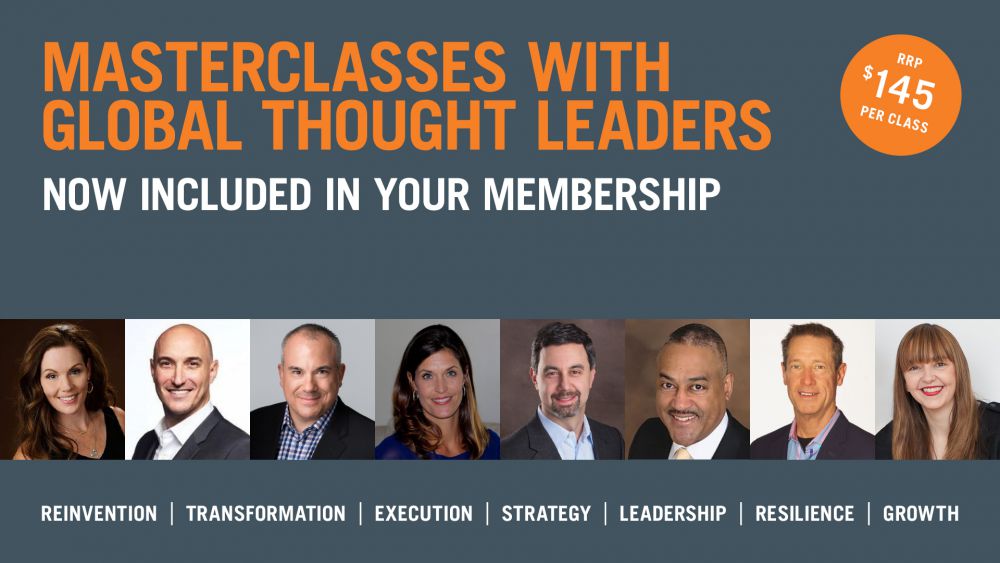Speaking up at work must be encouraged for businesses to thrive

Psychological safety is a belief that you can speak up at work with:
- questions,
- concerns,
- ideas.
Even those that you're not terribly confident about.
But Harvard professor Amy Edmondson, author of The Fearless Organization says psychological safety is absent in most workplaces.
"Part of the reason is we human beings have very instinctive responses to hierarchy, and most organizational workplaces have hierarchies in them. We have instinctive responses to hierarchy that lead us to hold back, to be more engaged in impression management, how do I look?"
Feeling safe in the workplace
Professor Edmondson says her research over 20 years shows a relationship between psychological safety in a group or workplace and learning behaviors, such as:
- reporting of errors,
- being more creative,
- quality improvement implementation,
- speaking up with ideas.
As a result, psychological safety is a good predictor of performance.
And, as you'd expect, where psychological safety is missing, there were poor business performance outcomes and human safety failures.
What does an unsafe workplace look and feel like?
In her interview with The Growth Faculty, Professor Edmondson said you can tell a workplace is psychologically safe by listening closely:
- Are people speaking up with problems and failures or just with successes, or are people raising half an idea?
- Are they asking for help when they're in over their head?
- Are they saying when they don't know something?
And, observing closely:
- Are people willing and able to laugh at themselves and with each other?;
- Do they have intense focus on the work, rather than on impression management?;
- Are they talking about the customer, talking about the tasks, exhibiting less caution?
Leadership skills needed to make a workplace psychologically safe
"They need self-awareness, to begin with, because many leaders don't realize that they're scary, right? Even if they don't see themselves as scary, the position they hold, the role that they occupy, may have a silencing effect."
She says the best bosses run a fearless workplace by getting people to talk frankly.
First steps leaders can take to make sure that their workplace is psychologically safe
"It starts with purpose, because what we're asking people to do is effortful, a little bit anxiety-producing. To really speak up candidly about things that you're worried about, ideas you have, that's stressful and challenging."
Professor Edmondson says you want your people to have:
- A deep understanding of why the work the company does matters and why it matters to customers or to the world.
- An understanding of the nature of the challenge that we face. Eg. Let's say we're in patient care delivery. We want to say, "Wow, this is important work, yes, and it's complex, interdependent work; error-prone, complex systems that we work in."
You're saying, "Speaking up is mission-critical to providing good care."
Amy Edmondson's GREAT EIGHT, 8 getting to know you questions we ask all our authors:
Recommended book: Leadership and Self-Deception, and the author, oddly, is the Arbinger Institute. So they don't even put a name on it. I guess it's a team effort. And it's a very engaging book that looks at self-awareness and looks at our sort of very spontaneous tendency to blame others when things go wrong and not necessarily see our own impact in it. And it's told in an engaging, novel format that makes it quite easy and fun to read. And powerful, powerful insights.
How did you get your first-ever job? Well, my first-ever real job, I wrote a letter to a personal hero of mine, Buckminster Fuller, who was a great American inventor, visionary, educator who was all about: how do we work together to make a better world? And I wrote him a letter and, to my astonishment, he wrote me back with a job offer.
What frustrates you at the moment about business leadership? I suppose what frustrates me most is the emphasis on short-termism and often the emphasis on short-term profits rather than long-term value creation. And it's much discussed and apparently just very hard for people to shake. And I think we miss the opportunities to create so much more value and opportunity and positive impact on society when we are too short-term focused.
How do you push yourself when the going gets tough? I remind myself of what's at stake, and sometimes that's very real, and sometimes it's a little bit of a gimmick, like, "Whoa, if I don't finish this paper or if I don't get this talk prepared, it will just be terrible for the audience or for the students, or what have you." So just remind myself of why it matters.
What's one of the best decisions you've ever made to improve your career? I'm an academic, right? And that means you come in, you publish or perish. And I made the decision to not worry, and I really had to be disciplined about it, but to not worry about whether I'd get promoted, whether I'd get tenure at Harvard. I was 100% sure I wouldn't, anyway, but I didn't want to get crippled by that.
I thought, just do the best work you can now. Someone else will hire you if it doesn't work out here. Don't spend your time trying to game it, thinking about, who are the important people I have to get to know?, or any of that stuff. Just do good work, enjoy it, and feel a sense of appreciation for the opportunity to do this work right here, right now, work that I believed might matter. And don't worry about whether I get to stay here. And I think that made me less anxious, more creative, and ultimately allowed me to get tenure in a great university.
What's been your lowest moment and how did you recover from it? Oh gosh, so many low moments, really. I mean, I suppose the really lowest moments have been personal, where a child is sick in some very, very troubling way, like one of my two sons. And I felt helpless and felt there's really nothing ... It's hard to say, "Oh, this is something I can't fix. I can't control it and I can't fix."
And so that's, in those moments, it's the self-discipline to have the serenity to cope with and accept the things you can't fix, and just do the best you can to remain a positive force in those moments.
What do you think is the next trend in leadership? Humility, right? I think there's a growing recognition ... And not humility in the sense of false modesty, but humility with a sense of wonder and appreciation for how very much I don't know and cannot do myself, which gives me a greater curiosity for what others bring and also a greater appreciation for what others bring, and for the opportunity that we have to work together to create something great.
What is a fun fact that's not widely known about Amy Edmondson? I'm a competitive sailor. I do a lot of summer sailing racing up in the state of Maine, and it's a great team sport, meaning that I and my crew really have to work together. And it's sort of putting some of those theories in action in a very fun, but often cold and wet, setting.
To buy The Fearless Organization, click here.
The interview with Amy Edmondson, author of The Fearless Organization, can be accessed by members of The Growth Faculty, by logging on and clicking here.
The Growth Faculty has this year launched virtual masterclasses - the Time For Transformation series; especially designed for business leaders. We make learning and development easy and inexpensive by bringing your team the world's renowned thought leader. Ensure your team are trained to pivot, adapt and innovate in these unprecedented times. See who's up next.


 Australia
Australia
 European Union
European Union
 New Zealand
New Zealand
 United Kingdom
United Kingdom
 United States
United States
 Singapore
Singapore

